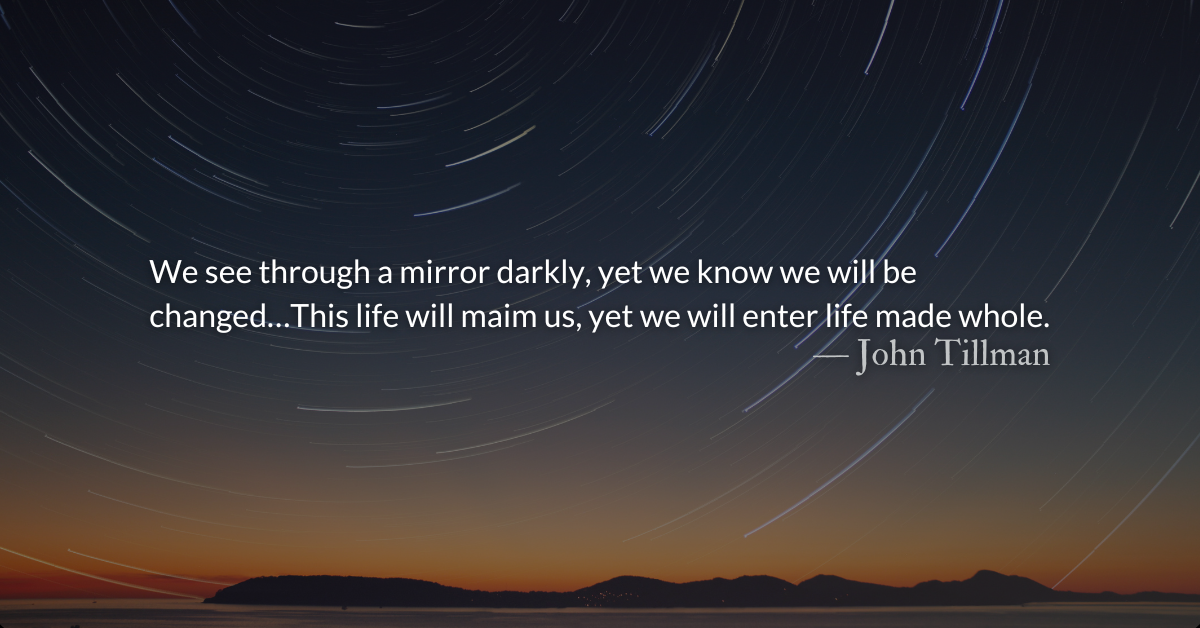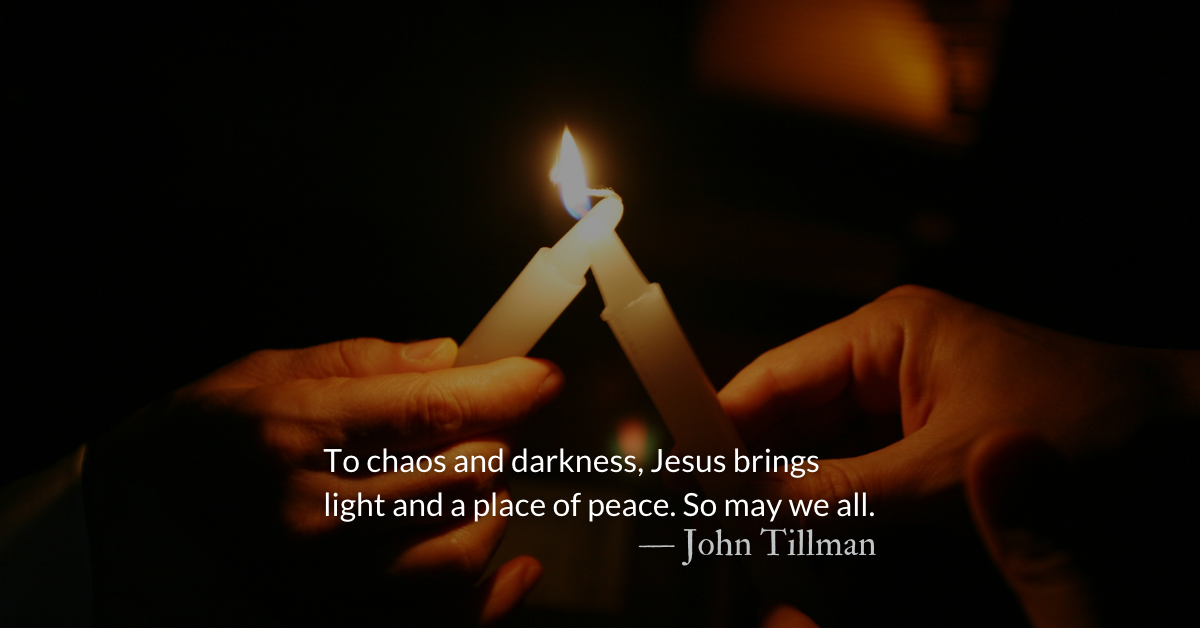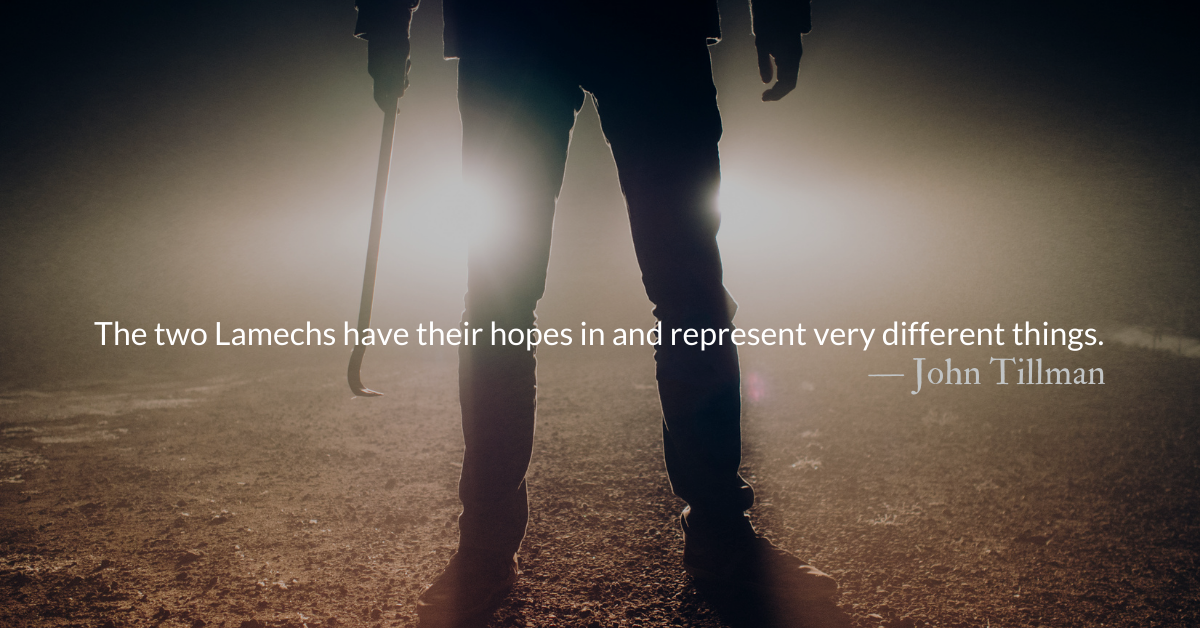Scripture Focus: Matthew 5.29-30
29 If your right eye causes you to stumble, gouge it out and throw it away. It is better for you to lose one part of your body than for your whole body to be thrown into hell. 30 And if your right hand causes you to stumble, cut it off and throw it away. It is better for you to lose one part of your body than for your whole body to go into hell.
Matthew 18.7-9
7 Woe to the world because of the things that cause people to stumble! Such things must come, but woe to the person through whom they come! 8 If your hand or your foot causes you to stumble, cut it off and throw it away. It is better for you to enter life maimed or crippled than to have two hands or two feet and be thrown into eternal fire. 9 And if your eye causes you to stumble, gouge it out and throw it away. It is better for you to enter life with one eye than to have two eyes and be thrown into the fire of hell.
Reflection: Maimed Yet Made Whole
By John Tillman
Christ’s resurrected body was glorious and mysterious in many ways. Tangible, yet able to move intangibly from place to place. Physically identifiable, yet at times unrecognizable. Living, yet bearing deadly wounds.
So then, would our wounds persist if we took Christ’s words about removing hands or eyes literally? Will we “enter life” maimed?
If we attempt to interpret our Heavenly existence by these words, we have turned the instrument the wrong way around. This saying is not a telescope for looking into Heaven but a microscope for examining our hearts. It does not tell us what Heaven will be like. It tells us how to live on Earth until the resurrection comes. Yet, reflecting on the resurrection can help us live now.
The life we live now, in the body, we live by faith in the Son of God. In the resurrection body, we will live face-to-face with the Son of God. In this life we must discipline our bodies, our flesh, conforming it to the image of Christ. We begin and continue this work in faith partnered with the Holy Spirit but completion only comes at the resurrection.
The point of the resurrection is not that life will continue as it is now. Thank God. After tasting this life, would we really say, “More, please.”? If we would, the fault lies in our limited palates and imaginations. There is a better world. A banquet worth indulging in.
The resurrection does not condemn the physical; it redeems it. Our bodies are not evil and our spirits good. The resurrection reclaims and restores our full nature as simultaneously physical AND spiritual.
What we will be is yet to be known, but we will be like Jesus. Our bodies will be so mysteriously glorious that C.S Lewis said if we could see the average human now as we will be, we would be tempted to worship that glorious being as a god.
Resurrection life will be mysterious and unrecognizable to us now. We see through a mirror darkly, yet we know we will be changed. We will be like the angels. We will be as Christ is, transfigured and resurrected, maimed yet made whole.
Let us live now, straining toward what is ahead, with no regrets for what is behind but with wonder at what is to come. This life will maim us, yet we will enter life made whole.
Divine Hours Prayer: The Cry of the Church
Christ has died. Christ has risen. Christ will come again!
– From The Divine Hours: Prayers for Summertime by Phyllis Tickle.
Today’s Readings
Song of Songs 8 (Listen 2:23)
Matthew 5 (Listen 6:03)
Read more about Amazing Jesus
Every person healed in the Bible, died eventually. Every one of them will be ultimately healed at the resurrection.
Read more about Pause To Read
We published a surprise Easter episode Sunday morning! Subscribe and share some episodes with friends.












